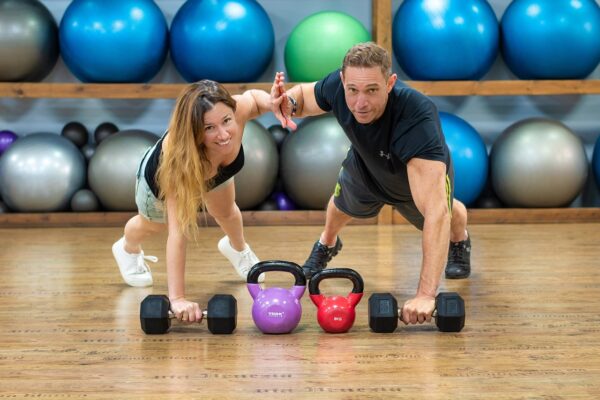Boost Your Immunity: Unleash the Power of Exercise for a Stronger Immune System
The benefits of regular physical activity are more important than most of us are aware of. It helps us get a better night’s sleep, lowers the risk of a variety of ailments, strengthens our bones and muscles, and improves mental health. Another benefit is that something simple like exercise can boost our immune system and help us stay healthy.
There is a link between physical exercise and the immune system, and incorporating physical activity into our daily lives can help keep us healthy by boosting our immunity. Regular exercise helps the immune system fight infections and diseases.
Exercise reduces the chronic inflammation related to many health problems, including a weakened or compromised immune system. Exercise increases anti-inflammatory molecules by reducing the inflammatory response in the body and building a healthier immune system.
Exercise can help our stress levels, which can influence our immune function. Chronic stress can impair our immune system’s activity, making individuals more susceptible to infections or illnesses. Even a relatively brief amount of physical activity, such as vigorous walking for ten minutes, can boost our mental alertness and put us in a positive mood. By managing stress through exercise, we can help our immune system function optimally.
The Immune System: A Quick Primer
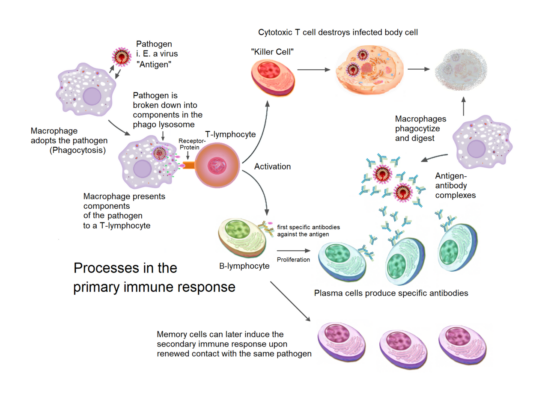
Sciencia58, CC BY-SA 4.0, via Wikimedia Commons
Our body’s immune system defends us against pathogens, viruses, and bacteria that can cause disease and reoccurring infections. The immune system includes protective cells, tissues, and organs that work together to eliminate potentially harmful foreign invaders. Antibodies, lymph nodes, and white blood cells all work together to form a healthy immune system.
Innate and adaptive are the two types of immune responses that our bodies use to protect us. The innate immune system is the first line of defense that fights unwelcomed pathogens. This defense uses physical and chemical guards, including the skin, mucous membranes, and stomach acid, that prevent pathogens from invading the body.
Adaptive immunity is a more specific and targeted response that develops over time as the body encounters different pathogens. It involves activating immune cells, such as T cells and B cells, that recognize and remember specific pathogens. Once activated, these cells can produce antibodies and other immune molecules that target and destroy the invading pathogens. This is why you don’t catch the cold everyone else has.
As part of the network for the immune system, signaling molecules and immune cells are responsible for preventing harmful immune responses. However, when the immune system is compromised, you’ll have a greater chance of becoming ill.
Exercise and the Immune System: The Connection

Image by Jan Alexander from Pixabay
Regular exercise offers many benefits, but one we don’t usually consider is that it can help increase the production of white blood cells and antibodies. These are essential components of our immune system. Exercise also helps improve circulation and oxygen delivery to tissues, which can enhance immune function.
The concept of “immunoregulation” through exercise refers to using physical activity to modulate immune function, helping to reduce inflammation and promote overall health. Exercise strengthens your heart, and your circulation improves as a result.
When you exercise, your body’s demand for oxygen goes up because of the increased blood flow. A stronger heart delivers more oxygen and keeps the arteries clean and functional. That means the likelihood of developing cardiovascular conditions such as high cholesterol, coronary artery disease, and heart attacks is reduced. Maintaining an exercise routine can lower both your blood pressure and lipid levels.
Moderate Exercise: The Sweet Spot for Immunity

Image by Stan Petersen from Pixabay
The relationship between exercise and our immune system is one of the most important aspects of maintaining optimal health. In addition to the prevention of obesity and systemic inflammation, regular physical activity influences the immune system in a very positive manner.
While exercise helps our immune function, we must find the right balance. Long-term, high-intensity exercise that wears us out may impair our immune functions. The key is to find a sustainable exercise program.
Moderate exercise elevates your heart rate and increases breathing, but it doesn’t leave you drained of energy and completely exhausted. This type of exercise can include taking a brisk walk, riding a bike, or swimming. The duration of this exercise is also important, as longer exercise sessions could weaken the immune system temporarily.
Benefits of Aerobic Exercise

Image by David Mark from Pixabay
Aerobic exercises that get your heart rate up are excellent methods to improve overall health and get the heart pumping. During aerobic exercise, you breathe more deeply, and the blood flows through your system more quickly, not allowing plaque to build up. Here are some of the ways that aerobic exercise can support immune health:
- Improved Circulation
Aerobic exercise increases your heart rate, so more blood flow delivers extra oxygen to tissues throughout the body. This increased circulation strengthens the immune cells, including the white blood cells, which fight off infection and disease.
- Stress Reduction
Excess stress can hinder the immune system, making it difficult for the body to defend itself against illness and infection. Luckily, aerobic exercise can help us reduce stress and relax. When we exercise, the body releases endorphins, natural mood boosters that make us feel happier. This can help lower stress hormones, which benefits our immune function over time.
Benefits of Resistance Training

Image by Ольга Бережна from Pixabay
Resistance training can be an important part of keeping the immune system functioning properly. Here’s how:
- Muscle Strength and Immunity
Research has shown a link between strong muscles and a robust immune system. Resistance training can help increase muscle mass and strength, which supports immune function. Strong muscles can fight off infection and disease, helping to keep us healthy and resilient.
- Improved Lymphatic System Function
While blood vessels deliver nutrients and oxygen throughout our body, the lymphatic system runs through our bodies to remove waste and toxins. It also plays a role in immune function by transporting immune cells throughout the body. Resistance training can help support the lymphatic system, improving its function and overall health.
Flexibility and Balance Training: Additional Immune Boosters
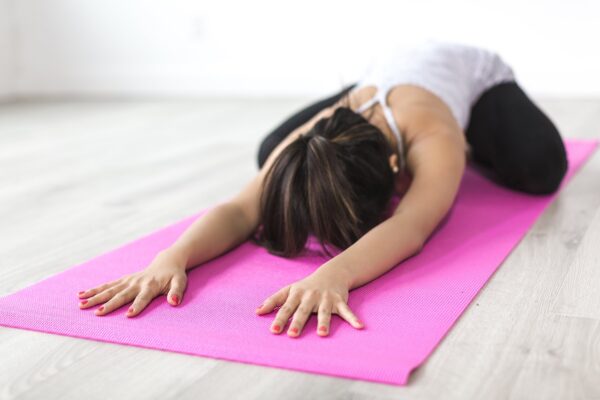
Image by StockSnap from Pixabay
When we think about physical training being beneficial for immune health, we don’t typically consider the benefits of flexibility and balance training. Yoga, Tai Chi, and Pilates are all low-impact exercises that improve our balance, breathing, flexibility, and general health. They also help our immune systems.
The benefits of yoga, tai chi, and other flexibility and balance exercises have been used in Eastern medicine with great results for thousands of years. These practices are excellent ways to reduce stress and promote relaxation, which can help support immune function. Additionally, these exercises incorporate movements that promote healthy circulation by stimulating the lymphatic system.
These practices support overall immune function by reducing stress and improving circulation. Flexibility and balance exercises can help support immune function and promote overall health. People of all fitness levels can typically benefit from these types of workouts.
Nutrition and Hydration: Exercise Partners for Immune Health

Image by Devon Breen from Pixabay
When it comes to having a healthy immune system, proper nutrition, and hydration are just as important as exercise. Try to eat a well-rounded diet that contains a variety of fruits and vegetables, lean proteins, whole grains, and healthy fats to keep your immune system functioning properly. Healthy meals give your body the vitamins, minerals, and antioxidants it needs to function, which is the key to optimal health. Adequate hydration is also crucial, as water helps flush out toxins and supports the production of immune cells.
Research has shown that certain nutrients are crucial for immune health. While it is ideal to get these nutrients from the food we eat, many of us can also benefit from taking supplements.
Vitamin C has a critical role in the production of our white blood cells, which are essential for eliminating damaged cell tissue. Vitamin C rich foods include citrus fruits, fruit juice, and leafy green vegetables.
Vitamin D supports the immune system and helps prevent respiratory infections. The body produces vitamin D through exposure to sunlight, and it can also be found in foods like fortified milk and fatty salmon. Zinc, found in seafood, poultry, and beans, can help regulate immune cell function and reduce the duration of the common cold.
Exercise and Sleep: A Powerful Immune Duo

Image by Michael Kay from Pixabay
In addition to proper nutrition and hydration, adequate sleep is crucial for immune health. Not sleeping well or not getting enough sleep can weaken our immune system, making us vulnerable to illness. Our body repairs and regenerates itself while we sleep, and this rebuilding plays a critical role in immune system function.
Participating in any form of physical activity provides us with health benefits beyond strengthening our muscles. Your mind will be distracted from the stresses of everyday life and allowed to think of new solutions to problems when your body is kept active.
Exercise can play a role in improving sleep quality. But be aware that working out too close to your bedtime might have the opposite effect and keep you awake longer than you hoped. Try to finish your workouts a few hours before you try to get some sleep.
Age and Exercise: Staying Immune-Strong Throughout Life

Image by dae jeung kim from Pixabay
Regular physical activity can help strengthen our immune systems and lower the odds of developing age-related disorders. Exercise improves strength, balance, and flexibility and slows the decline of immune functions that comes with aging.
However, it’s important to tailor exercise programs to your individual needs and abilities. Walking, swimming, and yoga are examples of low-impact exercises that are helpful for people who can’t move as well as they used to. Younger adults can perform more strenuous routines, such as running or weightlifting.
Exercise is a powerful tool for boosting our immune functions and reducing health risks. By tailoring exercise programs to your individual needs and abilities, all of us can reap the benefits of exercise at any age.
Exercise for Athletes: Balancing Performance and Immunity

Athletes will often push their bodies to the limit to achieve peak conditioning. However, physical activity that is too intense can put a strain on our immune system, increasing the risk of illness or infection. Overtraining, inadequate recovery time, and improper nutrition can all contribute to immune dysfunction. To maintain immune health, athletes should find a balance between training intensity and recovery. Here are some strategies for athletes to consider:
- Gradually increase your training load to avoid sudden spikes in intensity that can overwhelm the immune system.
- Include active recovery, such as light exercise or stretching, into training plans to help the body recover and reduce inflammation.
- Prioritize proper nutrition and hydration to support immune function and aid in recovery.
- Monitor sleep quality and quantity, as adequate sleep is crucial for immune health.
- Avoid overtraining and burnout by taking regular rest days and scheduling recovery weeks into training plans.
- Practice good hygiene, such as washing your hands frequently. Avoid sharing water bottles and towels to reduce the risk of spreading germs and viruses.
By balancing performance goals with immune health, athletes can achieve their best results while maintaining a healthy immune system.
Exercise and Chronic Illness: Support for the Immune System
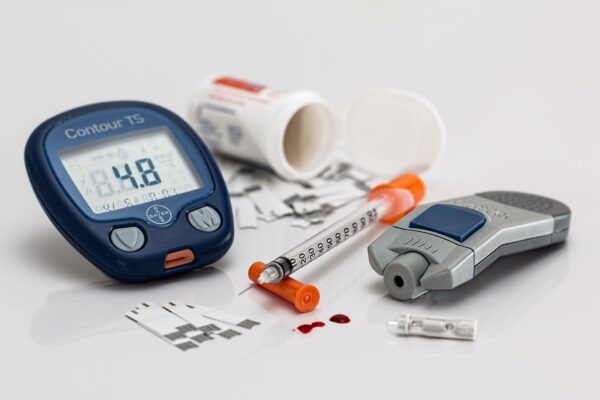
Image by Steve Buissinne from Pixabay
Exercise can improve our cardiovascular health, increase muscle strength, and reduce inflammation, which supports our immune function.
If you have a chronic illness, it’s important to consult with your primary care physician before starting any new physical activity. Some precautions and adjustments to consider may include:
- Starting slowly and gradually increasing exercise intensity and duration.
- Monitoring your blood glucose levels, heart rate, and other vital signs during exercise.
- Adjusting medication doses or timing to accommodate exercise routines.
- Choosing low-impact activities to reduce joint stress or pain.
- Taking adequate rest breaks between workouts and staying hydrated to allow your body to recover.
Immunity-Boosting Exercise Programs: A Sample Workout Plan
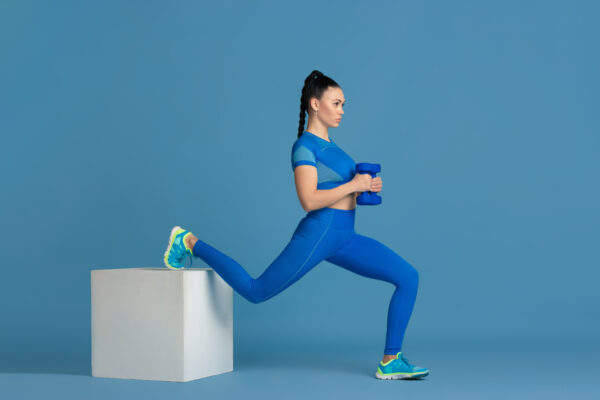
Creating an exercise program that supports immune health doesn’t have to be complicated. By incorporating various activities that focus on aerobic fitness, strength training, flexibility, and balance, individuals can achieve a well-rounded routine that supports immune function. Here is a sample exercise program:
- Warm-up: 5-10 minutes of light aerobic exercise, such as walking or cycling, to get the heart rate up and the blood flowing into your muscles.
- Aerobic Exercise: 20-30 minutes of moderate-intensity aerobic exercise, such as jogging, swimming, or cycling, to improve cardiovascular fitness and blood flow.
- Flexibility and Balance: 10-15 minutes of yoga, tai chi, or other flexibility and balance exercises to improve range of motion and reduce stress.
- Strength Training: 20-30 minutes of resistance training exercises, such as bodyweight squats, push-ups, and lunges, to build muscle and support immune function.
- Cool-down: 5-10 minutes of gentle aerobic exercise, such as walking or stretching, to gradually lower the heart rate and promote recovery.
This sample exercise program can be adjusted to accommodate different fitness levels and preferences. By combining different types of exercise and focusing on overall health and wellness, most people can support their immune systems and achieve their fitness goals.
Regular exercise is an important part of maintaining our overall, total-body health. By incorporating aerobic exercise, strength training, flexibility, and balance exercises into our workouts, we can support our immune systems while enjoying a variety of activities.
Coated Silver: Your Ally in Immune Health

Image by Willi Heidelbach from Pixabay
First, let’s discuss Coated Silver products and how they can support immune health. Coated Silver is a company that produces supplements containing silver ions, which are claimed to have immune-boosting properties. Silver ions are believed to work by blocking the cell membranes of harmful bacteria and viruses, preventing them from replicating and causing illness.
While Coated Silver supplements are marketed as a valuable addition to your immune-boosting arsenal, they should not replace other healthy habits such as exercise, nutrition, and sleep. Instead, Coated Silver is promoted to complement your efforts to strengthen your immune system and help protect your body against illness and disease.
Coated Silver supplements are said to complement the immune-boosting benefits of exercise by providing an additional layer of protection against harmful bacteria and viruses. Coated Silver supplements are marketed for people with a high risk of infection and claim to offer immune benefits for:
- Respiratory Health
- Sinus Health
- Digestive Health
- Skin Health
- Bladder and Urinary Tract Health
- Travel Health
- Sports Immunity Support
It is important to mention that the effectiveness of silver-based supplements is still a topic of ongoing research, and further studies are required to fully understand their benefits and safety profile. Always be sure to read the label and follow the instructions. Check with your doctor to ensure that the Coated Silver supplements will not have a negative interaction with any medications you are taking or cause adverse effects on your health.
By combining exercise and Coated Silver supplements, the company suggests you create a comprehensive approach to immune system strength that addresses both internal and external factors that can impact your immune function. However, it is crucial to keep in mind that the FDA does not evaluate the claims made by supplement companies, and it’s always best to consult with a healthcare professional before adding supplements to your routine.
Summary and Key Takeaways
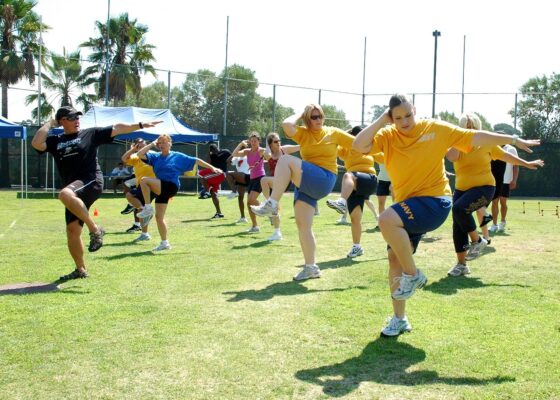
Image by Welcome to All ! ツ from Pixabay
Exercise is an important part of keeping our immune system healthy enough to protect us against illness and disease. A comprehensive approach to immune system strength through exercise, nutrition, and supplements can help you stay healthy and protect against illness and disease. By improving circulation, reducing stress hormones, and supporting lymphatic system function, exercise improves the functions of our immune system to promote overall health.
Regular exercise can help us with diseases like obesity, diabetes, and cardiovascular issues. An exercise program can help support immune functions and reduce the risk of infections and diseases by helping us maintain a healthy weight and reducing inflammation.
In addition to exercise, Coated Silver supplements are promoted as offering an additional layer of protection against harmful bacteria and viruses, potentially complementing the immune-boosting benefits of exercise. For fitness enthusiasts and athletes, it is important to consider the impact of training on immune function and explore various methods, including supplements like Coated Silver, to support immune health. Keep in mind that individual results may vary, and it’s always best to consult with a healthcare professional before adding supplements to your routine.
A well-rounded approach to boosting the immune system may involve proper nutrition and hydration, sufficient sleep, and considering supplements like Coated Silver. By integrating these strategies into your routine, you can potentially enhance the positive effects of exercise on your immune system’s health.
Frequently Asked Questions (FAQs)
As we have seen, exercise can be a powerful tool for strengthening the immune system. Here are some common questions that people often ask about exercise and immune health:
- How much exercise is enough to support my immune system?
It is suggested that we complete 2.5 hours of moderate-intensity exercise or 75 minutes of vigorous exercise per week. However, when it comes to immune health, any amount of exercise is better than none. Even short bouts of activity, such as a brisk walk or stretching, can help boost immune function.
- Can too much exercise weaken my immune system?
Yes, it is possible to overdo it when it comes to exercise. Intense, prolonged exercise can temporarily suppress immune function, leaving the body more vulnerable to infection. Strike a balance between pushing yourself physically and allowing your body adequate time to rest and plenty of recovery time.
- What types of exercise are best for immune health?
Both aerobic exercise and resistance training can be beneficial for immune health. Aerobic exercises, such as brisk walking, jogging, or cycling, help improve circulation and oxygen delivery, supporting our immune functions. Resistance training, such as weightlifting or bodyweight exercises, helps us build strong muscles and supports the lymphatic system, which is part of the immune system.
- How can I incorporate Coated Silver products into my fitness routine for optimal immune support?
Coated Silver offers a range of products that can complement your exercise routine and support immune health. It’s been shown that silver ions have antibacterial and antiviral properties, which can help reduce the risk or spread of infection. Coated Silver supplements, such as silver lozenges, can be a convenient and easy way to boost immune function.
Conclusion
Exercise is a powerful tool for boosting immune function and reducing the risk of infection. Whether you’re a fitness enthusiast or just starting an exercise program, incorporating regular exercise into your routine can have a positive impact your immune system. Additionally, supplements like Coated Silver can complement your exercise routine and provide additional immune support. Listen to your body when exercising or taking supplements and remember to consult your healthcare professional before starting any new exercise program or supplement routine.
Sources:
https://www.ncbi.nlm.nih.gov/pmc/articles/PMC7387807/
https://www.health.harvard.edu/heart-health/exercise-and-your-arteries
https://primewomen.com/wellness/fitness/best-exercise-for-a-strong-immune-system/
https://rightasrain.uwmedicine.org/body/exercise/exercise-immune-system
https://www.nytimes.com/2022/09/07/well/move/exercise-immunity-covid.html
https://www.health.com/fitness/does-exercise-boost-immunity
https://www.sciencedirect.com/science/article/pii/S2095254618301005
https://www.healthifyme.com/blog/yoga-boost-immune-system/
https://www.health.harvard.edu/staying-healthy/how-to-boost-your-immune-system
https://www.healthymummy.com/boost-your-immunity-with-this-7-day-exercise-plan/
https://blastmotion.com/blog/how-exercise-affects-your-immunity-and-well-being/#gref
https://www.ftc.gov/business-guidance/resources/health-products-compliance-guidance
